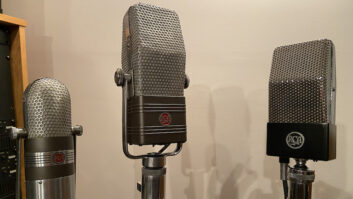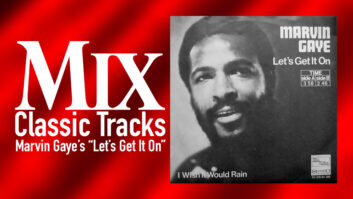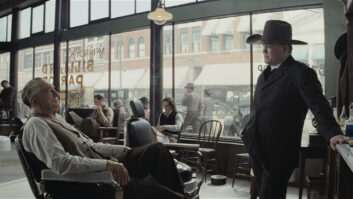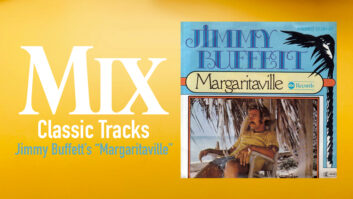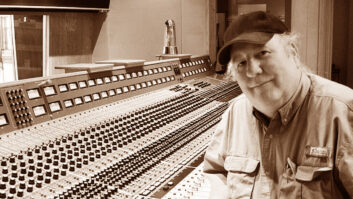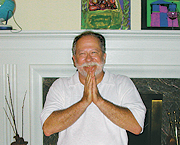
On January 21, 2005, Martin Feldman passed away. Many knew him as the founder of Paragon Recording in Chicago in 1969; others as co-creator of Chicago-based EARS (Engineering and Recording Society). Feldman got his start as a gigging drummer in St. Louis before heading to Chicago to learn under legendary engineer Malcolm Chisholm. According to Gary Khan, founder of Pegasus Recording Co., Feldman was most comfortable “holding court” anywhere, but Chisholm was the only person who commanded Feldman’s immediate and respectful attention with a stern, but simple, “Martin!” as only Chisholm would call him. While at Paragon, Feldman worked with such luminaries as Earth, Wind & Fire and a who’s who of Chicago-based R&B, soul, jazz, rock and blues artists.
Thanks to Khan for helping us round up the following sentiments.
Gary Khan: “In a post-EARS meeting discussion, he reminded us that mere presence in a professional studio meant you had proven skills. To quote in that context: ‘Remember when you actually had to have talent to set foot in a studio?’ [Paragon] had such a wide reputation that Queen’s producer called from England for studio time at the height of their popularity, but [Feldman] dismissed the call as a prank. Marty was (much) later approached at a Grammy Awards show by him, somewhat reticently, who asked if he’d ‘somehow’ offended Marty. Marty still languished over ‘all the studio time he could’ve booked doing Queen’s endless layering overdubs!’”
Bruce Swedien: “In 1969, [Swedien’s wife] Bea and I were living in Chicago. I had a staff job recording and mixing music for a major Chicago-based ad music producer. To tell the truth, I was getting very bored with recording music for advertising. But I have always loved recording records. I love recording a meaningful musical statement. I had to do something! Bea and I talked about it into the wee hours many a night. She said that I must be true to my calling. The only thing to do was to go freelance and broaden my options for session work. I did it! I told the jingle producer that I was going freelance. I think I was one of the first in the industry to do this!
“Marty Feldman was the first studio owner in Chicago to open his studio to me. I am forever in his debt for that kind gesture. Marty was a great guy and helped me attain my independence. I love ya, Marty!”
Tom Radtke (past session player with Feldman’s wife, Bonnie Herman): “I do remember Marty’s great ‘no problem’ attitude when it came to production requests. I was working on a Bill Quateman album, and Bill and the producer, Robin Cable, from England, wanted an organ overdub for a track, but something big! A big B3 sound or something — and remember, this is before samples. The next day, I show up for more rhythm tracks and Marty has audio cable coming out of that third-floor control room, down three flights of stairs, out the door and along the sidewalk on Huron, down the street and across State, down the block running into the back of this big church. They were recording Dick Reynolds (of Comtrack) overdubbing on this kick-ass pipe organ. I walked into the control room and Marty had this big grin on his face. ‘Big enough?’ he asked. Ah, the ’70s. He will be missed.”
Ed Cherney: “Marty Feldman hired me as an apprentice engineer at his Paragon Studios the night that Jimmy Carter was elected president. It was one of the happiest days of my life. He gave me my first opportunity to follow my dreams. Marty created a studio that at the time was on the cutting edge of technology, music and creativity. Marty took personal responsibility for educating and molding kids that wanted to grow up to be recording engineer/producers. He made sure that you learned everything about the business and art of recording music — from the way you held and moved a microphone, cleaned a toilet, mopped a floor, edited tape, made copies, treated clients, made coffee, tuned drums — and capturing great music. Any success that I have had can be directly traced to the discipline, education, interest, caring, opportunity and love he showed me and many others that passed through his beloved Paragon Studios. The time that I spent at Paragon with Marty I consider a gift and his spirit travels with me wherever I go.”
Tom Fiegle (former Paragon employee, now with Shure and a new studio owner): “He changed my life.”

